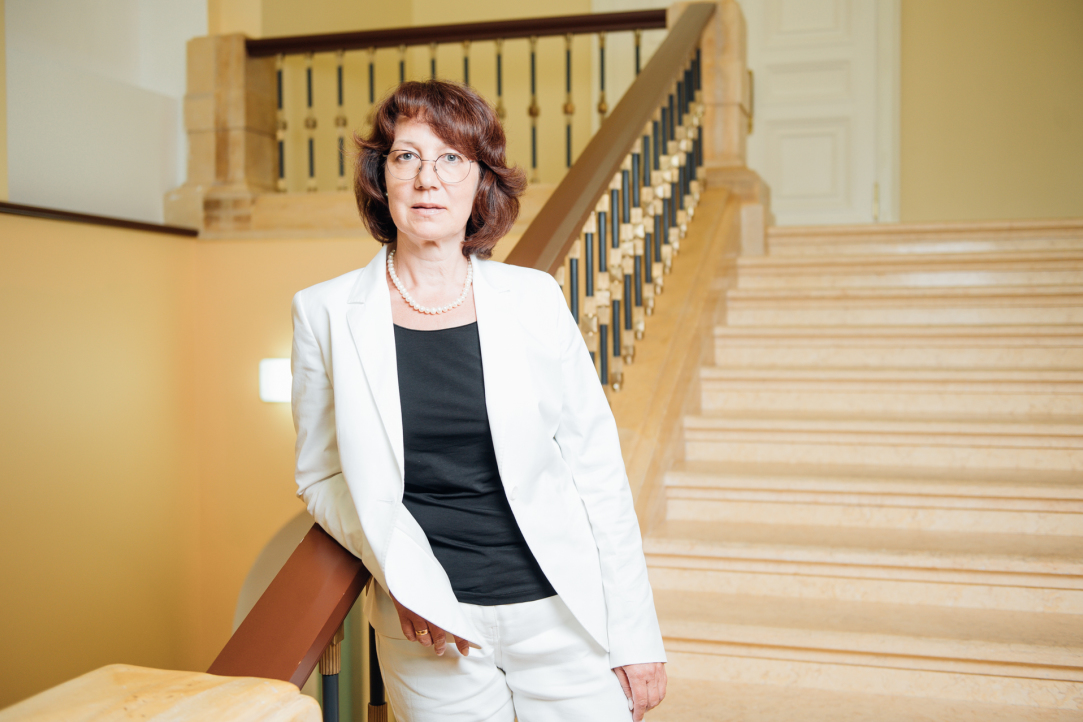
Two Russian Regions Cooperate in Migration Studies as Part of Mirror Labs Project
What does Kaliningrad Oblast, an exclave Russian territory, have in common with Perm Krai, a region in the Urals? How do researchers use digital humanities methods to study migration? Sergei Kornienko, Leading Research Fellow at the Group for Historical Research (HSE University-Perm), heads the Mirror Lab project ‘Migration as a factor of social transformation of Soviet regions during the post-war reconstruction period: an analysis through digital humanities’. In this interview for The HSE LooK, he talks about this collaboration.

HSE University Collaborates with University in Southern Russia to Compare Values and Identities across Generations and Regions
Is there a system of values that is common to the whole population of Russia? Do values differ across generations? Is it possible to carry out research among refugees? HSE University researchers joined forces with their peers from Kuban State Technological University to study values and intercultural relations across Russian regions as part of a Mirror Labs project. The HSE LooK talked about this cooperation to Nadezhda Lebedeva, Director of the HSE Centre for Sociocultural Research, who heads up the Mirror Lab project, and project participant Victoria Galyapina, Leading Research Fellow at the same Centre.

'Canonisation' of Fanfiction: How Fan Creations Are Reshaping Cultural Canons
Harry Potter becomes a scientist, 'Hermione has changed a lot over the summer', and the Bennet sisters from Pride and Prejudice are fighting against zombies. A game, an unwillingness to part with one’s favourite characters, an attempt to correct the author's 'mistakes' — all of this is fanfiction. Fan creations, on one hand, draw on cultural canons, and on the other hand, challenge them and offer an alternative vision. High art can no longer ignore fan practices — both as its own mirror reflections and as a space for new opportunities. A paper by HSE researcher Ksenia Romanenko helps us delve deeper into the culture of fanfiction and examine its relationship to the cultural canon.

HSE University Studies Human Capital as Part of Consortium
The Human Capital Interdisciplinary Research Centre (HCIRC) is a world-class research centre comprising a consortium of HSE University, RANEPA, MGIMO University, and the Institute of Ethnology and Anthropology of the Russian Academy of Sciences (RAS). Its work was highly rated by the RAS in 2021. Lilia Ovcharova, HSE University Vice Rector and initiator of the centre’s creation, talked to the HSE News Service about integration in international studies on active ageing, creating a database on development trends in human potential, studying the effects of digitalisation, and the centre’s priority activities for the future.

Scientists Doubt that DeepMind’s AI Is as Good for Fractional-Charge Systems as it Seems
In their paper published in Science in 2021, a DeepMind team showed how neural networks can be used to describe electron interactions in chemical systems more accurately than existing methods. A team of researchers from Skoltech, the Zelinsky Institute of Organic Chemistry, HSE University, Yandex, and Kyungpook National University show in their comment in Science that DeepMind AI’s ability to generalise the behaviour of such systems does not follow from the published results and requires revisiting, the Skoltech website says.

Harnessing Synergy
Through its Mirror Laboratories project, HSE University develops collaborations with academic institutions across the country. Today, it includes 22 ongoing projects in partnership with 20 universities in mathematics, computer science, economics, sociology, biology, history and many other fields. Marina Litvintseva, Director for Advanced Research at HSE University, coordinates international and mirror laboratory projects. In this year’s second issue of HSE LooK, she talked about the development of mirror laboratories and the future of the project.

Second HSE University Satellite Launched from Baikonur
On August 9, a Soyuz 2.1b rocket launched with a payload of HSE University’s second satellite, which will monitor the land surface of the Arctic region. HSE MIEM Deputy Director Andrey Abrameshin spoke about the university’s space plans, while Top Class competition winner Alexey Gilenko shared his impressions of the launch at Baikonur Cosmodrome.

Russians Feel Disappointed with Their Income if Their Reference Group Average is Higher
Researcher Anastasia Dubnovitskaya of HSE University has studied the impact of social comparison on the level of Russians' pay satisfaction. The study used data from the Russia Longitudinal Monitoring Survey — HSE University (RLMS-HSE) from 2002 to 2018. It turned out that the main contribution to Russians' pay satisfaction is the difference between their actual pay and the average wages of the reference group — people with similar characteristics. The size of one's own wages was of secondary importance.

Satanism, According to Science: How Sociology Explains the Worship of Dark Forces
The concept of Satanism originating from Roman Catholic sources continues to lack a rigorous social science interpretation. Satanism is sometimes believed to be a reflection of real-life problems faced by society and is sometimes considered a phenomenon in its own right that merits serious study. HSE doctoral student Oxana Mikhailova provides an overview of how the concept of Satanism is treated by different sociological theories and offers her commentary.

HSE Researcher Reveals Work Values Held by New Generation of Undergraduates
A large-scale study carried out by Anita Poplavskaya, postgraduate student at the HSE Faculty of Social Sciences’ Department of Economic Sociology, on a sample of 5,000 undergraduates at eight regional universities in Russia reveals the students' prevalent work values. The top five include high pay, interest in one's work, job security, skills match, and career prospects.


Application deadline: June 23, 2025